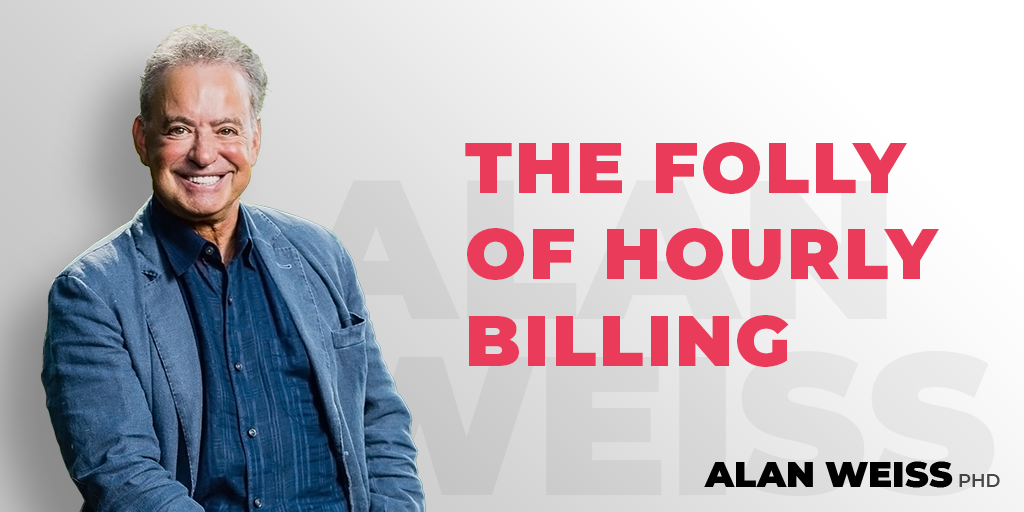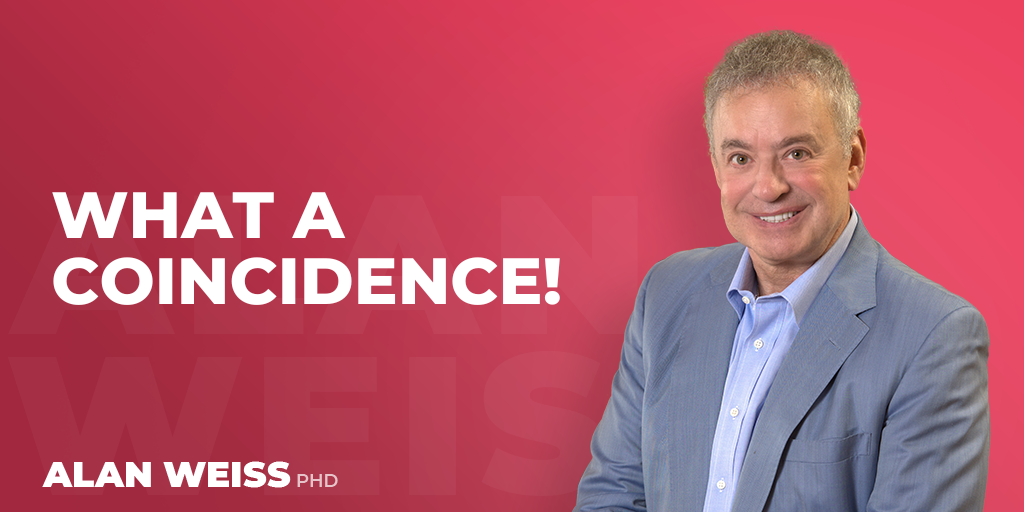
The Folly of Hourly Billing
I pioneered value based fees for consultants in the late 90s and my book, Value Based Fees, (Wiley) is now in its third edition and on audible. I first published the concept in the original Million Dollar Consulting (McGraw-Hill) in 1992, today in its sixth edition and on audible.
There have been three kinds of people I’ve encountered in consulting since I began spreading the word. One is the person who instantly recognizes the benefit of charging based on value and not time, and immediately begins changing billing practices (“early adapters”). A second is more cautious, and wants to investigate more and requires some social proof. Eventually, almost all of them come around.
But the third kind are tendentious in their resistance. One guy actually told me he could make more charging by the hour than I could charging by value. Sure, if he worked 3,000 hours a week, which might be possible on Pluto (which has also lost its status). What’s actually causing this resistance is the fear of admitting that someone has been undercharging for so long, left so much money on the table, that they are in denial and refuse to change their ways today even in the bright headlights of rationality.
Charging for value applies to all professional services: accounting, architecture, law, designers, wedding planners, and so forth. I’m going to give you an example that should scare the hell out of those holding out in caves and under rocks, resisting the clarion calls of progress.
I’m a big believer in therapy. Many years ago, with my first therapist, in perhaps the fourth session, he became frustrated at my strict routines. “For God’s sake, Alan, it’s all about success not perfection!” he yelled. I didn’t hear another word he said in that session, and when I left I changed my life, realizing at last that striving to be perfect wasted time and energy and wasn’t possible in any case. People didn’t appreciate me because I was “perfect” but because I helped them—imperfectly.
He charged me at the time $120 per hour, and I still hear clinicians in my community who need more money consider taking on more patients at $300 an hour instead of marketing themselves based on their value.
A year ago, that therapist and his wife stopped into a restaurant where I was dining solo at the bar. He told me he knew I was in there because he saw my Rolls outside. I told his wife that her husband had changed my life 25 years ago. He modestly said it was no big deal. He was actually embarrassed.
If he had charged me based on value, I’d still be paying him off.






